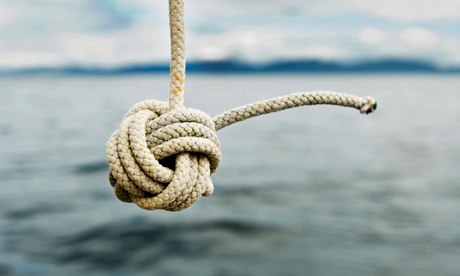
George Gascoigne (1539?–1577) had a disappointing career at court and perhaps this accounts for the pragmatic, rather sardonic nature of his poetry. Or perhaps these characteristics hindered his advancement? At any rate, there is an independence of mind here, and a voice and tone which cut through the centuries as he exclaims, "Fie pleasure fie! I cannot like of this" or sings a lullaby to his lost youth and his lost erection. He was a clever innovator in a variety of genres besides poetry, and some of his ideas about verse composition still have currency today.
This week's poem, And if I did, what then?, reveals a poetry shaved close to ordinary speech. It was an art he recommended in Certayne Notes of Instruction Concerning the Making of Verse or Rhyme in English (1575) – probably the first "How to Write" handbook in English literature. "Place every word in his natural emphasis or sound," he sensibly advised. The result here is dialogue-poetry that could easily be imagined as an exchange between an actual couple – a courtly, witty, word-loving couple, but impelled by honest emotion.
Cleverly beginning in the middle of the conversation, it teases us but doesn't make too much of a mystery. We soon get the gist: the speaker who begins the poem is a woman, and she has just been accused of infidelity. "So what?" she asks, in the idiom of the day. The twist in her little protestation is that fidelity is mere greed: "The seas hath fish for every man, /And what would you have more?" The sexual metaphor of fish and fishermen is absolutely ordinary, but Gascoigne keeps refuelling it, and makes it work efficiently for the entire length of the poem and for all its moods.
The narrator enters in the second verse, to outline the situation, and record his reply. His mistress doesn't speak again. Behind the light and measured tone, you can pick up regret, bitterness and even the red-faced shame of what seems to have been a public come-uppance. He says it's all cool: we know it's not.
The ex-lover reminds his mistress that the desire for fidelity is not unreasonable or unique to him: "Each fisherman can wish/ That all the sea at every tide/ Were his alone to fish." Defeated, he seems to leave the fishing to his rivals, but this is a mere gesture, and what is simply "loss" in the last line of verse four becomes complicated as "luck and loss" in the first line of verse five. After that neat little gibe at the mistress, he can relish the prospect of the new fishermen-lovers coming to grief. While, in the poem's metaphorical scheme, it's the fishing boats implicitly that "stick on sands" there's also more than a suggestion of the fish themselves, dead and perhaps a little rotten ("stick" maybe carrying a distant echo of "stink").
Idiomatic expressions in use today are suggested throughout: "more fish in the sea". "popped the question", "left on the shelf", "the turn of the tides" – and all are given a flip, so the jaded surface becomes an underside zinging with vitality. The popped question is made to hint at a gun or weapon ("to beat my brains about"), the "shelf" literally denotes the sandbank where fishing boats run aground, "the tides of turning time" revolves a cliché into a big and dangerous wave.
These idioms suggest Gascoigne is following his own advice in Certayne Notes of Instruction and using "the same figures and tropes in verse which are used in prose". He repels literariness by a further device, the selection of words that are few in syllables, because "The most ancient English words are of one sillable, so that the more monasillables that you use the truer Englishman you shall seeme, and the less you shall smell of the inkhorn." The lines composed of monosyllables are the key lines ("And if I did, what then?) and punch-lines: "Then will I laugh and clap my hands/ As they do now at me."
Gacoigne learned a lot from "father Chaucer" – but that audible "snap, crackle, pop" in his lyric soundscape is very much his own.
And if I Did, What Then?
"And if I did, what then?
Are you aggriev'd therefore?
The sea hath fish for every man,
And what would you have more?"
Thus did my mistress once
Amaze my mind with doubt;
And popp'd a question for the nonce
To beat my brains about.
Whereto I thus replied
"Each fisherman can wish
That all the seas at every tide
Were his alone to fish.
"And so did I, in vain;
But since it may not be,
Let such fish there as find the gain,
And leave the loss for me.
"And with such luck and loss
I will content myself,
Till tides of turning time may toss
Such fishers on the shelf.
"And when they stick on sands,
That every man may see,
Then will I laugh and clap my hands,
As they do now at me."

